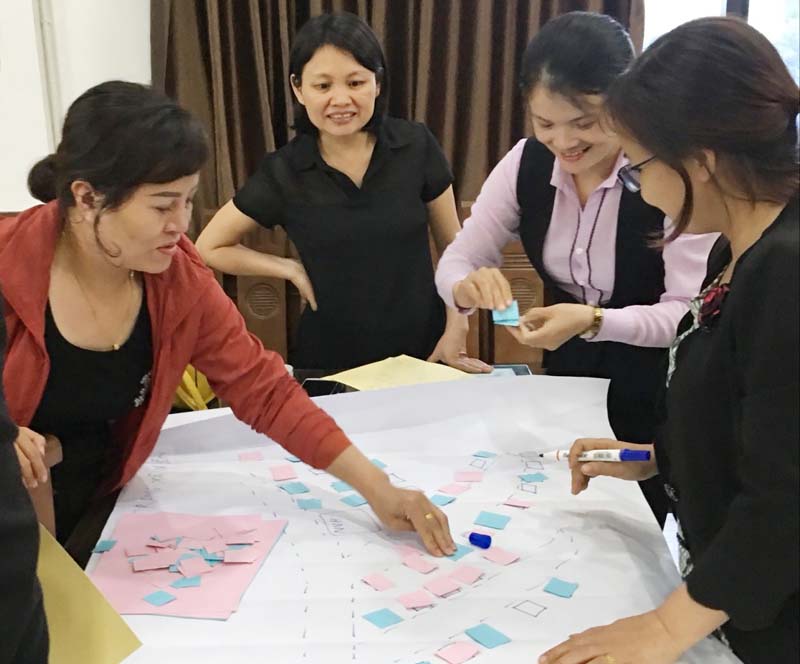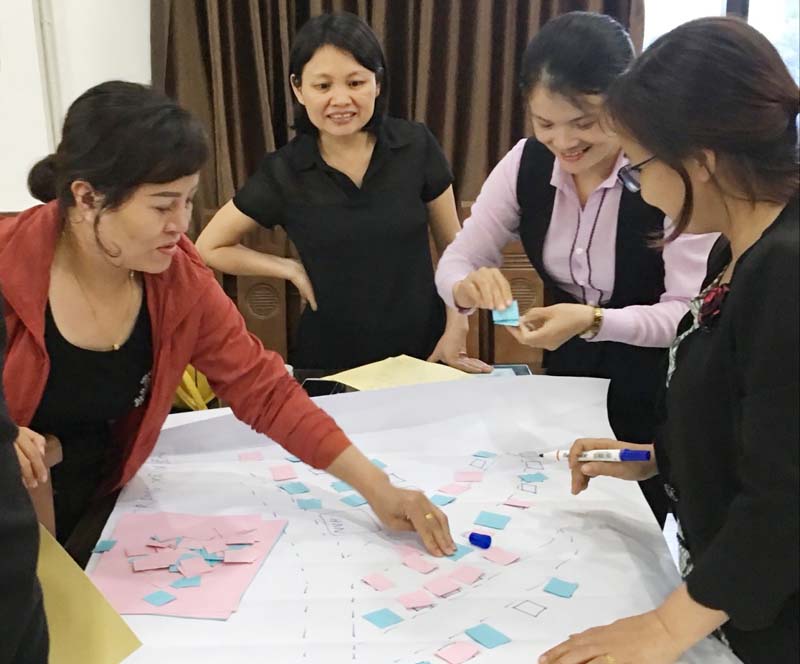
(HBO) - Hoa Binh is one of 21 provinces in Viet Nam selected to implement the program "Expanding the scale of clean water and rural sanitation" based on the results of loans from the World Bank (WB).
The provincial core cadre implementing the program
"Expanding the scale of rural sanitation and clean water" draws the
sanitation map of Hoa Binh province.
According to the Hoa Binh Centers for Disease Control, 76.49% of households in Hoa Binh province have hygienic latrines. This ratio has increased compared to 2018 (71.75%).
Hoa Binh is one of 21 provinces in Viet Nam selected to implement the program "Expanding the scale of clean water and rural sanitation" based on the results of loans from the World Bank (WB).
It is respected by 2020, 60 communes will have achieved "Sanitation of the whole commune"; 85 water works and communal latrines will be renovated and built.
With the assigned task, in 2018, the Health Sector of Hoa Binh province implemented intervention activities to support 11 communes in the province to achieve "Sanitation of the whole commune". In 2019, continue to intervene to support 12 communes in Kim Boi and Lac Son districts and register tally in other communes. In 12 communes, the poor households are supported 1 million VND, the near poor households 500,000 VND to build hygienic latrines.
In fact, raising awareness and changing people's behaviors is a core and sustainable solution. On June 28, 2019, the Department of Health issued a communication plan to change sanitation behaviors, develop rural sanitation markets in 2019.
Target in 12 intervention communes, 100% of households are propagated, advocacy for building and using the pupils at right age. 100% of households and teachers are provided with personal hygiene knowledge and washing their hands with soap. Store owners and manufacturers of construction materials agree to become collaborators and builders and receive training in sanitation market, construction techniques for latrines... 90% of commune and village health station staff, participants in the program were trained on hygiene promotion models, communication on sanitation behavior change. Local leaders, village heads and prestigious people are provided with information on the importance and specific contents of rural sanitation.
Currently, the Department of Health of Hoa Binh province is actively implementing the goals according to the set plan.
The emulation movement "Hoa Binh joining hands to build new-style rural areas” has been widely spreading, becoming a driving force that motivates the localities to renew rural landscapes and improve the material and spiritual lives of the residents. In this movement, the people play a central role-both as the main implementers and direct beneficiaries of its outcomes.
In response to the global digital revolution, Hoa Binh Newspaper is transforming itself into a modern and multi-platform media hub, blending cutting-edge technology with a restructured newsroom and a new generation of tech-savvy journalists.
Hoa Binh province’s Association of the Elderly recently held a conference to review the project on expanding the inter-generation self-help club model until 2025.
In a move to implement Resolution No. 57-NQ/TW, issued on December 22, 2024 by the Politburo, which targets breakthroughs in science-technology development, innovation, and digital transformation, the Hoa Binh provincial Department of Health has issued a plan to roll out the "Digital Literacy for All” campaign within the local health sector.
An Nghia Commune (Lạc Sơn District) is one of the communes that achieved the tha standard of the national new rural area in 2018. Entering a new development phase, the commune is now trying to meet the criteria for the advanced new rural development. With the strong political will and the public consensus, the commune is gradually overcoming the challenges to reach this goal, aiming for the sustainable development.



